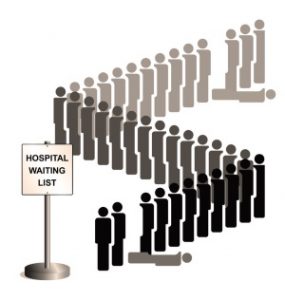There are serious concerns that COVID related delays in cancer screening/treatment will lead to a significant spike in cancer deaths in the short to medium-term. While many are sceptical about claiming compensation in the midst of the COVID pandemic, the NHS still has legal obligations regarding treatment. Any compensation claim would take into account the impact of COVID but also what many see as the reallocation of resources away from lifesaving cancer treatment.
Cancer Research UK issues damning report
In June 2020, Cancer Research UK issued a report highlighting the huge disruption to cancer services as a consequence of the COVID pandemic. The report highlighted a number of issues including:-
- A backlog of 2.1 million people awaiting breast, bowel or cervical cancer screening
- During this period it is estimated that 3,800 cancers would have been diagnosed
- Urgent cancer referrals have been impacted with 290,000 people missing out on additional testing
- During this period it is estimated that more than 20,000 cancers would have been diagnosed
While appearing to be critical of the NHS, the report was also sympathetic towards the plight of doctors and nurses. Cancer Research UK estimates that in order for doctors and nurses to care for their patients in safety, an additional 21,000 – 37,000 COVID test will be required each day!
Cancer treatment
While the likes of breast, cervical, lung and ovarian cancer tend to be more common, there are many other treatments which have been delayed. The full list of more prominent cancers in the UK include:-
- Bowel cancer
- Breast cancer
- Cervical cancer
- Eye cancer
- Ovarian cancer
- Lung cancer
- Prostate cancer
- Testicular cancer
- Skin cancer
- Pancreatic cancer
In fairness to the NHS, the intermittent lockdowns and spikes in COVID infections have caused internal turmoil. While placing patient safety and shielding from COVID first, there have been numerous reports of cancelled operations/treatments which were timed to have the maximum effect when combating diagnosed cancers. At this moment in time it is difficult to see a clear path for cancer treatment and how the authorities can ever hope to catch up with demand for screening (let alone treatment) in the foreseeable future.
Standard malpractice cases
If we put COVID aside for one moment, when pursuing compensation for medical malpractice, there are three components which must be proven by the claimant:-
- Duty of care
All doctors and healthcare professionals have a duty of care to their patients. This is a legal obligation to administer reasonable care during their normal line of work.
- Breach of duty of care
Any successful malpractice claim will need to prove a breach of duty of care which is effectively medical negligence. The most common measurement of this duty of care is whether treatment received is of a standard which would have been administered by a fellow professional with the same experience and skill set.
- Causation
Even if you have proven a breach of duty of care, in order to receive any compensation that breach would need to have caused additional injury/suffering for the patient. If there was a breach but the patient would not have been benefited from any treatment, it is doubtful whether any compensation would be awarded.
Appointing a personal injury claims solicitor
If you believe that a genuine delay in cancer treatment/screening has impacted your standard of living, or mortality, you may well be eligible for compensation. At this moment in time the COVID pandemic, and the monumental effort by the NHS to treat sufferers, will be taken into account by the courts. However, that does not protect those who had the opportunity but failed to treat cancer patients in the appropriate manner.
Before approaching a personal injury claims solicitor you should try and gather as much information as possible including:-
- Hospital correspondence
- Missed appointments
- Misdiagnosis
- Unacceptable delays
- Confusing advice
In these specialist medical compensation cases, many personal injury claims solicitors will utilise the services of healthcare professionals. As we touched on above, if someone of a similar standing with similar experience would have administered a higher standard of care, this would strengthen any compensation claim.
It is unclear at this moment in time how the NHS will tackle the issue of delayed treatment and the impact on patient mortality. However, that should not stop the lodging of bone fide medical malpractice claims. After all, in the absence of an out-of-court settlement, it will be down to the court to make a legal ruling when taking all aspects into account.
Future enquiries
We can expect a raft of enquiries in the short to medium-term as slowly but surely life returns to normal. The Patient Association is already planning a future enquiry to examine how treatment of serious illnesses was administered during the pandemic. The outcome of this review may reveal shortfalls in the system, or a genuine lack of resources, and could impact future COVID related medical malpractice claims.
Summary
Unfortunately, the eventual return to a normal cancer screening/treatment timetable will come too late for many people. Aside from those who have already been diagnosed with cancer, but experienced delays in their treatment, many people will be blissfully unaware they have cancer. It is an awkward balance, holding the NHS to account, while also appreciating the huge impact of COVID on the UK healthcare system. That said, where patients have suffered from medical malpractice/medical negligence, guilty parties still need to be held to account.



